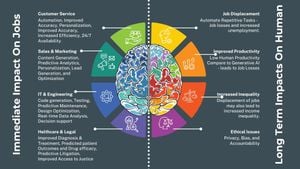At the COP29 climate summit currently underway in Baku, Azerbaijan, the urgency of addressing climate finance has taken center stage, especially as nations grapple with the dire consequences of global warming. The backdrop is fraught with challenges, as developing nations, often hit hardest by climate disasters, are demanding accountability and action from wealthier countries.
Economists from the Independent High-Level Expert Group on Climate Finance (IHLEGCF) have emphasized the necessity for richer countries to more than double their climate finance contributions, targeting at least $1 trillion annually by 2030. The focus of this request is not just about meeting previous pledges but ensuring future projections align with the commitments laid out during the Paris Agreement. The current annual bilateral public funding stands at approximately $43 billion, falling shockingly short of the required increase to $80 to $100 billion—a figure experts argue is non-negotiable if nations are to meaningfully combat climate change.
During the opening days of COP29, Muhammad Yunus, Bangladesh's interim leader and Nobel laureate, voiced his deep frustration with the negotiations. Yunus stated unequivocally, “Why should there be a negotiation? You are causing the problem, then you solve it.” His words resonate with many developing nations as they navigate the financial quagmire created by others’ emissions. Yunus's administration, stepping up to tackle climate issues, reflects the dire need for immediate actions to shield vulnerable populations from rising sea levels and increasingly severe weather, challenges unique to Bangladesh.
The urgency of funding is underscored by another report set to be unveiled at the summit, which articulates the overwhelming necessity for $1 trillion per year flowing to developing nations, excluding countries like China, by the end of the decade. This financial backing is pivotal for those nations seeking to transition to greener economies and bolster their defenses against climate impacts. Alarm bells have sounded as it was revealed the anticipated achievements concerning climate goals are slipping, with projections indicating these countries needed funding five years sooner than previously agreed—the need for support has never been this great.
This call for action isn’t just rhetoric. The IHLEGCF states, “The less the world achieves now, the more we will need to invest later.” Each year, developing nations suffer catastrophic consequences from climate disruptions which could be mitigated through appropriate financial investments. Failure to act now creates stricter and more hazardous conditions to meet future climate targets.
Various experts have noted the challenge is compounded by the need for massive increases not only from bilateral financing but also through multilateral development banks, like the World Bank. These entities are also expected to triple their financial flows to developing nations to approximately $250 billion to $300 billion per year by 2030. An emphasis on innovation and private sector investments, which should contribute around $450 billion to $550 billion of the total funding, is being favored as part of this broader financial strategy.
Yunus and other leaders insist the onus is on rich nations, historically responsible for the vast majority of carbon emissions, to lead the charge for change. Countries like the United States and those within the European Union have been criticized for not fulfilling their previous commitments. At this moment of desperation and hope, the spotlight remains firmly on COP29, showcasing whether these nations can place the interests of the most vulnerable and the health of the planet above political agendas.
With the stakes high and the clock ticking, the question of climate responsibility has arisen anew in Baku: Can wealthier nations step up and deliver meaningful financial support to mitigate the crisis they contributed to creating? Each day at COP29 serves as both a reminder and a challenge to the global community, forcing all parties to confront their roles and responsibilities as stewards of the planet.
While the negotiations at COP29 have often resembled high-stakes bargaining, Yunus compares it to a “fish market,” where outcomes are reduced to desperate deals rather than sincere commitments to solving an existential crisis. Leaders must act decisively to meet the moral and ethical obligations they owe to those most impacted by climate change. There's no fallback to be had when entire nations, and their futures are at risk.
The call for genuine accountability coupled with the demand for solutions to the imminent threats posed by climate change cannot be overstated. Each passing moment without progressive action not only advertises neglect but also increases the calamity waiting to proliferate across our world. To rephrase Yunus’s sentiment: If the crisis bears their fingerprints, shouldn’t the wealthy nations be the ones to wipe it clean?



